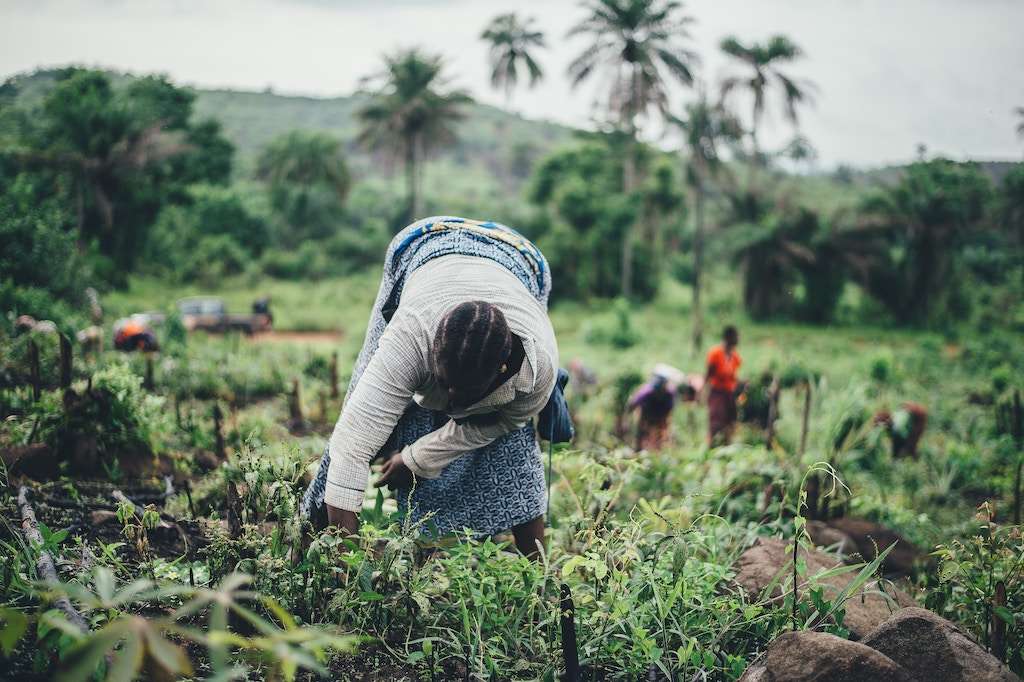Two new studies signal a shift toward integrated, globally conscious solutions to address climate change and nutritional challenges.
A team of international scientists, led by researchers from Oregon State University, has developed a “restorative” pathway to address climate change, focusing on social and economic justice along with environmental sustainability. This innovative approach, outlined in a study published in Environmental Research Letters, presents a feasible route to mitigate the worst outcomes of climate change.
William Ripple, professor of ecology at Oregon State University, and former postdoctoral researcher Christopher Wolf, now with Terrestrial Ecosystems Research Associates, argue that this scenario should be considered alongside the five existing “shared socioeconomic pathways” (SSPs) used by the U.N.’s Intergovernmental Panel on Climate Change.
Ripple explained the significance of their proposal in a statement, “We understand that our proposed scenario may be a major challenge to implement given current trends in emissions, a lack of political will and widespread social denial, but its merits can’t even be honestly debated if it’s not included in the suite of options.” He advocates for “radical incrementalism” — achieving significant change through small, short-term steps, offering an alternative to current climate scenarios that often align more with the status quo.
Reducing resource consumption
The restorative pathway is inspired by a unique 500-year dataset illustrating humanity’s escalating resource demands since 1850, leading to ecological overshoot. Wolf highlights the urgency for action, pointing to the rapid growth in human population, GDP, and fossil fuel-dependent energy consumption, which have resulted in increased greenhouse gas emissions, altered land use, and a significant decline in biodiversity.
The SSPs, developed by an international team of climate scientists, economists, and energy systems modelers, describe various future socioeconomic developments and their implications for climate change mitigation and adaptation. Wolf elaborates, “They’re based on five narratives that describe alternative socioeconomic developments, some more sustainable than others. Our scenario focuses on reducing the consumption of primary resources to a level that keeps environmental pressures within planetary boundaries, with per capita GDP stabilizing over time.”

The authors, including Jillian Gregg of Terrestrial Ecosystems Research Associates, Detlef P. van Vuuren with the Netherlands Environmental Assessment Agency, and Manfred Lenzen of the University of Sydney, have analyzed a wide range of variables, such as fossil fuel emissions, human population, GDP, land use, and income inequality.
The data reveal a long-term pattern of global economic inequality, with the top ten percent consistently receiving at least 50 percent of all income since 1820. The proposed restorative pathway envisions a world focused on nature preservation, societal well-being and quality of life, gender equality and education, low fertility rates, higher living standards, and a swift transition to renewable energy.
This approach does not rely on carbon capture technologies or assume continual economic growth like some current SSPs. Ripple emphasizes, “By prioritizing large-scale societal change, our proposed pathway could limit warming much more effectively than pathways that support rising resource consumption by wealthy nations.”
The research team’s work is a call to action, presenting a holistic vision for addressing climate change, biodiversity loss, and socioeconomic injustice. Ripple’s involvement in other research, including a BioScience paper on the Earth’s worsening vital signs and another examining climate change and biodiversity crises from a cosmic perspective, underscores the urgency and importance of their findings.
Feeding sub-Saharan Africa
The findings come on the heels of research published last week in the journal Nature Food calling for climate-smart agriculture in sub-Saharan Africa as the region faces nutritional challenges as a result of climate change.
That study, led by Dr. Stewart Jennings from the University of Leeds, emphasizes the urgent need for agricultural diversification in the region, home to more than 1.2 billion people. The study advocates for a shift from maize to more resilient and nutritious crops like cassava, millet, sorghum, and various fruits and vegetables.
Maize, the predominant crop in this region, is now facing significant challenges due to changing climatic conditions. The study highlights the necessity of boosting food production to meet the growing demands of a population set to increase by an additional 740 million people by 2050, as per World Bank figures.
A key focus of the research is on enhancing nutrition security – ensuring the availability of essential micronutrients vital for health. This shift in agricultural practices is seen as imperative to prevent food and nutrition insecurity, especially as climate change brings about extreme and unpredictable weather patterns, impacting crop viability.

Professor Jennie Macdiarmid from the Rowett Institute at the University of Aberdeen, a co-author of the paper, stresses the importance of nutrition in agricultural policy. “The study has highlighted the need to place nutrition at the heart of agricultural policy to avoid the long-term unintended consequence of failing to produce food that can deliver the nutritional needs of the population,” she said in a statement. Macdiarmid warns that focusing solely on calorie production and climate adaptability could lead to nutritionally poor diets with adverse health consequences.
The research involved more than 50 researchers and extensive consultations with policymakers and stakeholders in Malawi, South Africa, Tanzania, and Zambia.
Dr. Jennings emphasizes the need for integrated policies. “Too often food, agriculture, and nutrition policies sit in siloes across different government departments,” he said, highlighting the study’s comprehensive approach that combines environmental impact assessments with nutritional needs.
One of the innovative solutions proposed is diversifying into soybean production. Soybeans are more resilient to climate impacts compared to maize and offer nutritional benefits. Dr. Ndashe Kapulu of the Zambia Agriculture Research Institute notes the potential of soybeans in enhancing food system diversity and resilience in the face of climate change.
However, the study also cautions against unchecked growth in animal-based product consumption. While increasing animal-based foods could improve diet quality, it could also lead to unsustainable levels of greenhouse gas emissions. The researchers propose a balanced approach, considering sub-Saharan Africa’s low emissions and the urgent need to address nutritional deficiencies.
The research forms part of the iFEED framework, developed under the GCRF AFRICAP program and the CGIAR Initiative on Climate Resilience. iFEED is a database designed to assist policymakers in developing food systems that are resilient to climate change and capable of providing nutritious food.
Related on Ethos:


